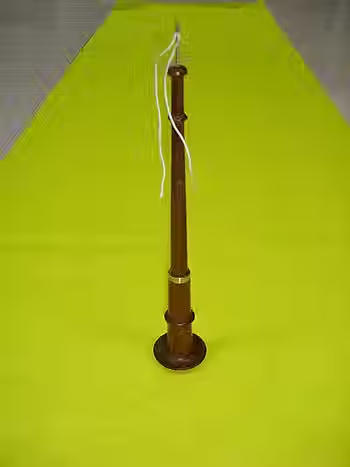Pi Java
- Jay Butler
- Jun 23
- 2 min read
Pi Java: The Sound of Bangkok’s Fight Nights
Bangkok Fight Nights after dark hums with its pulse. Neon flickers against slick streets, the scent of grilled meat clings to the air, and the roar of passing tuk-tuks mixes with the low thrum of anticipation.

Yet inside the great fight arenas of this city, Rajadamnern Stadium and Lumpinee Stadium, another sound rises above it all.
The sharp, ancient cry of the Pi Java.
This isn’t just music. It’s the voice of Muay Thai’s soul. And here, in the capital where legends are made, it means one thing: the fight is about to begin.
The Ritual Before the Violence
Before any fighter throws a punch at Rajadamnern or Lumpinee, they perform the Wai Kru, a ritual of respect and remembrance, one as essential to the sport as fists and elbows.
It’s a rite older than either of these storied venues, a solemn nod to teachers, ancestors, and the spirits that linger in these timeworn stadiums.
The moment the Pi Java lets out its first high, reedy note, the atmosphere changes. Crowds fall into a hush not asked for, but demanded by tradition. This isn’t a mere ceremony; it’s a tether to the past.
Each fighter’s Wai Kru is their dance, a prayer, a personal history played out in bows and steps, yet it’s the Pi Java that leads them through it.
The Instrument That Commands the Ring
The Pi Java itself is a simple thing to look at: a slender piece of aged wood, flared at one end, with seven finger holes. But in the right hands, it sings with a voice sharp enough to cut through a crowd of thousands.
Alongside the deep booms of the Klong Khaek drums and the sharp snap of the Ching cymbals, it carries the fighters through the Wai Kru and into battle.
As the first round bell rings, the Pi Java doesn’t fade. It ramps up, its mournful wail twisting with the rhythm of the fight. Faster, higher, louder, the tempo climbs with every exchange, until the ring is a storm of movement and noise.
A Legacy Still Alive
At Rajadamnern and Lumpinee, the Pi Java isn’t there for show. It’s an heirloom, a surviving piece of a centuries-old culture that refuses to be dimmed by city lights or modern distractions.
When you stand in those stadiums, surrounded by gamblers muttering odds, young hopefuls watching from the wings, and old men who’ve seen it all and hear that first note, you feel it.
The weight of history. The blood and sweat of fighters past. The unbroken chain from ancient battlefields to tonight’s main event.
It’s not just background music. It’s a voice reminding everyone why Muay Thai is called the Art of Eight Limbs and why, in these stadiums, it’s something more than sport. It’s a ceremony. It’s memory. It’s war.
And it always starts with the Pi Java.



Comments